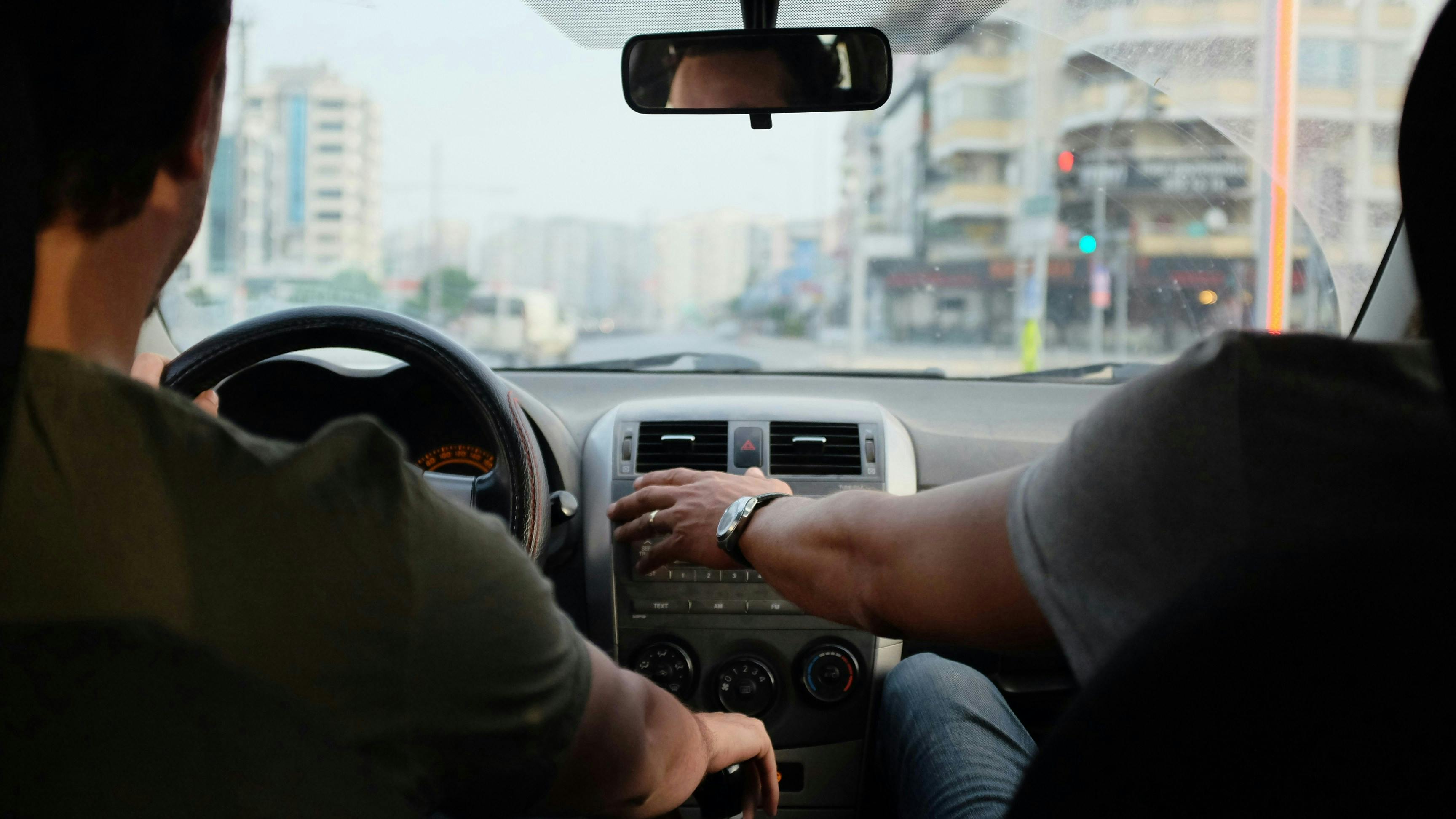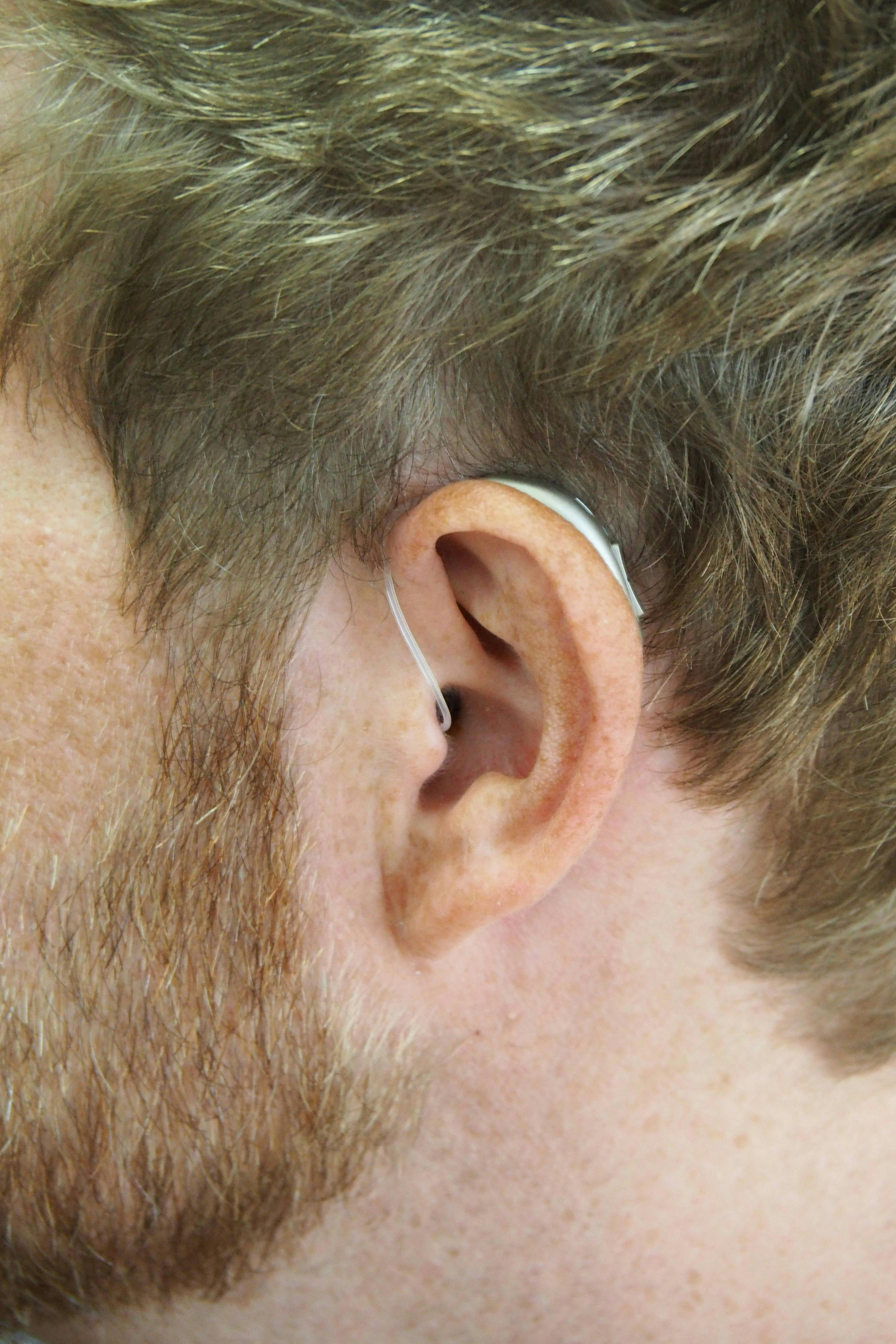
In order to be allowed to drive, you've got to prove you're fit and able to do so. Some medical conditions are notifiable, meaning you have to let the DVLA know about them; others automatically exclude you from getting behind the wheel. Here we're going to focus on hearing. Whether you've been deaf since birth, or have developed hearing problems as you've got older, we want to help get—and keep—you on the roads.
We'll take you through the commonly asked questions about driving while deaf, let you know how best to overcome some of the challenges you may face, and give you the confidence to start your driving lessons.
Am I allowed to drive if I'm deaf or my hearing is impaired?
Yes, you are absolutely allowed to drive if you’re deaf! Driving mostly relies on you being visually aware of your surroundings, so being deaf or hearing impaired doesn’t impact your ability to drive all that much. In fact, some research suggests that deaf people actually make better drivers, because you are less likely to get distracted by noises made by your passengers, radio or phone!
There are some ways in which you may need to adapt (we’ll get to them a bit later), but if you’re observant and good at picking up on visual clues, you’ll be well suited to driving.
Do I need to tell the DVLA if I'm deaf?
You don’t need to tell the DVLA that you’re deaf or that your hearing is impaired, unless you hold a bus, coach or lorry driving licence. The DVLA doesn’t impose any restrictions on deaf people driving cars at all, as it doesn’t consider your condition as hazardous to you or other road users.
The only time when you need to let the DVLA know about being deaf or hard of hearing is when you’re booking your theory and practical tests. There are different ways in which they can make the tests more accessible for you, but you’ll only be able to take advantage of these if you’ve arranged them beforehand.
Taking driving lessons

Some pupils choose instructors who are deaf themselves, or else seek out driving schools that specialise in working with deaf learner drivers. However, this can be quite restrictive—and if you’ve got other requirements, like wanting to get your test passed quickly, you might want to cast your net a little wider. Any instructor worth their salt should be able to make adjustments to communicate effectively with you, make your lessons enjoyable and get you through your test.
Before you book in for any driving lessons, make sure the instructor or driving school knows that you are deaf or hard of hearing. You might want to ask your potential instructor whether they have any experience of teaching someone who’s deaf—but don’t write them off if they don’t.
If you take lessons with an instructor who doesn’t use BSL (British Sign Language), they will discuss with you the best way they can support your learning. That’ll probably include things like communicating directions to you through previously-agreed signs and using diagrams to explain things. Your instructor may also get you to stop when they need to explain something to you, so that you can lipread or look at instructions. Driving instructors are always open to feedback, so if something's not working for you during your lessons, don't be afraid to raise this with them.
What challenges might I face as a deaf driver?
As a deaf or hearing impaired driver, it's good to be aware of certain challenges that you may face on the roads. You may not be able to hear:
- The engine. This isn’t usually an issue, but if there’s a problem with your car, it may start making a different noise to usual. Instead, keep an eye out for any warning lights on the dashboard, and don’t ignore them when they illuminate.
- Revs. Some manual car drivers rely heavily on the sound the engine makes to know when to change gear. Thankfully, there’s a rev counter you can look at instead. You’ll soon get to know the feel of your car, too—and that will help you navigate through the gears. Of course, you could avoid the issue altogether, by opting to learn in an automatic car.
- Sirens. During an emergency, police cars, fire engines and ambulances use every means to get your attention. Although sirens help to give road users advance warning of an emergency vehicle, hearing drivers still find it difficult to tell from which direction the noise is coming. So, just like every other driver, your best bet is to regularly check your mirrors. That way you should be able to spot emergency vehicles with flashing lights and prepare for them to pass.
- Horns honking. Drivers use their horns to alert fellow road users to a potential danger. Keep your wits about you and you should be able to spot hazards as they appear.
- Motorbikes revving. Sometimes motorbike riders will rev their engines to help alert drivers to their presence. They tend to do this particularly when there's a lot of traffic or you're stopped at a red light. Get into the habit of 'Thinking Bike'. Stay vigilant at traffic lights and make sure you check both wing mirrors every time you pull away.
Making the theory test accessible

When you book your theory test (or get us to book it for you), you need to tell the DVSA that you have a hearing impairment. The standard test involves just you and a computer screen—you’ll have to read and respond to 50 multiple choice questions and then identify hazards during video clips. There isn’t any sound during the test, so if you’re comfortable with this format, you can opt to take the test as it is.
However, if you prefer, there are a number of accessible options available to you. There’s no extra cost, but if you want to take advantage of any of them, you will need to contact the DVSA before your test.
- Taking the test in BSL. There will be a video with a BSL interpreter on the screen alongside the questions and answers. Bear in mind that some people have reported that the BSL isn’t totally clear, and you won’t be able to ask for clarification during the test.
- Using an interpreter. If you prefer to, you can use an interpreter who's there with you in person. They will sign the questions and multiple choice answers to you, but won't be able to give you any other help.
- Using a lip speaker. If you don’t use BSL, or if you prefer to lip read, you have a lip speaker with you.
- Using a hearing loop. Instead of having another person there to assist you, you can use a listening aid to help you hear the questions and possible answers.
How does the driving test work if you're deaf?
On your driving test, your examiner won’t use BSL. However, they will have training in examining deaf or hearing impaired candidates. Just like with the theory test, there are a couple of different options you can choose from when you take your practical.
Go it alone
Some deaf or hearing impaired people opt to take the test with just themselves and the driving examiner. Before you start driving, your examiner will explain how the test will work. They’ll use written notes and if you lipread, they’ll look at you as they talk. They will also take you through the different direction signs that they will give throughout the practical test.
Using an interpreter
Alternatively, you can choose to take a BSL interpreter with you on the test. The only requirement for this is that they’re at least 16 years old. But they can be anybody who can interpret for you, including your driving instructor. Although you will have to pay any fees that person charges for their service up front, you can claim the money back afterwards through the DVSA.
Top tip: Whether you use an interpreter or not, you’ll feel more confident and prepared if you go into your test with some idea of how it will play out.
FAQs
Do I have to wear my hearing aids when I'm driving?
Even if you usually wear hearing aids, there’s no obligation to wear them while you drive. However, you’ll probably find them helpful, because it’s useful to hear as much as you can on your journey. They might help you identify sirens, horns and your own engine noise.
Can I make modifications to my car?
The easiest way you can modify your car to make it more accessible is to add an extra interior mirror. This will help you to interact with your passengers, by letting you lip read the person sitting alongside you.
Which breakdown cover should I choose?
If you're travelling alone and you break down, the last thing you want is to be worrying about how to get in touch with your breakdown cover provider. Look into the accessibility of various breakdown cover options. Do they have a text service, or can you do video calling? There are plenty of options out there, so do your research, and get out on the roads with peace of mind.
Subscribe for driving advice, offers & more
We'd love to let you know about our courses, news and offers via email. You may unsubscribe at any time.
Star Genie Limited trading as PassMeFast. Company number 10093359
Copyright © 2024 owned by Star Genie Limited
PassMeFast, Blue Tower, MediaCityUK, Salford, M50 2ST
